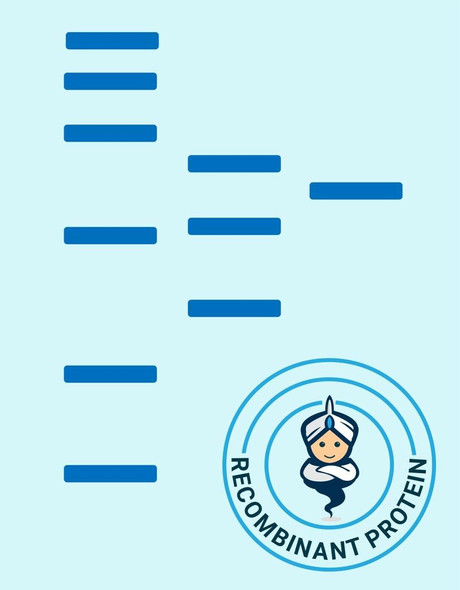Description
ASRGL1 Antibody (PACO07891)
The ASRGL1 Polyclonal Antibody (PACO07891) is a valuable tool for researchers studying ASRGL1, an enzyme involved in regulating asparagine metabolism. This antibody, produced in rabbits, has high specificity for human samples and has been validated for use in various applications, including Western blotting. By targeting the ASRGL1 protein, researchers can accurately detect and analyze its expression in different cell types, making it particularly useful for studies in cancer biology and metabolic disorders.ASRGL1 is known to play a crucial role in tumor progression and resistance to therapy by modulating the availability of asparagine, an essential amino acid for cancer cell growth.
Understanding the function of ASRGL1 can provide insights into potential therapeutic strategies for targeting cancer cells that are dependent on asparagine metabolism. Furthermore, the dysregulation of ASRGL1 has been implicated in various diseases, making it a promising target for further research in the fields of oncology and metabolic diseases.Overall, the ASRGL1 Polyclonal Antibody is a reliable tool for studying ASRGL1 biology and its implications in disease pathogenesis. Its specificity and sensitivity make it an essential component for researchers looking to explore the potential therapeutic opportunities associated with targeting ASRGL1 in cancer and metabolic disorders.
| Antibody Name: | ASRGL1 Antibody (PACO07891) |
| Antibody SKU: | PACO07891 |
| Size: | 50ul |
| Host Species: | Rabbit |
| Tested Applications: | ELISA, WB, IHC |
| Recommended Dilutions: | |
| Species Reactivity: | Human, Mouse, Rat |
| Immunogen: | Human ASRGL1 |
| Form: | Liquid |
| Storage Buffer: | PBS with 0.1% Sodium Azide, 50% Glycerol, pH 7.3. -20°C, Avoid freeze / thaw cycles. |
| Purification Method: | Antigen Affinity Purified |
| Clonality: | Polyclonal |
| Isotype: | IgG |
| Conjugate: | Non-conjugated |
| Synonyms: | asparaginase like 1;ASRGL1;ALP;ALP1;FLJ22316 ; |
| UniProt Protein Function: | ASRGL1: Acts in asparagine catabolism. May be involved in astroglial production of L-aspartate, which can act as an excitatory neurotransmitter in some brain regions. Belongs to the Ntn-hydrolase family. 2 isoforms of the human protein are produced by alternative splicing. |
| UniProt Protein Details: | Protein type:Other Amino Acids Metabolism - cyanoamino acid; Energy Metabolism - nitrogen; Amino Acid Metabolism - alanine, aspartate and glutamate; Hydrolase; EC 3.5.1.1; EC 3.4.19.5 Chromosomal Location of Human Ortholog: 11q12.3 Cellular Component: cytoplasm; nucleus Molecular Function:asparaginase activity; N4-(beta-N-acetylglucosaminyl)-L-asparaginase activity; beta-aspartyl-peptidase activity Biological Process: asparagine catabolic process via L-aspartate; proteolysis |
| UniProt Code: | Q7L266 |
| NCBI GenInfo Identifier: | 127798426 |
| NCBI Gene ID: | 80150 |
| NCBI Accession: | AAH21295.3 |
| UniProt Secondary Accession: | Q7L266,Q567Q4, Q6P1P0, Q8NI34, Q9H6F7, B2R7Q0, |
| UniProt Related Accession: | Q7L266 |
| Molecular Weight: | 18,981 Da |
| NCBI Full Name: | Asparaginase like 1 |
| NCBI Synonym Full Names: | asparaginase like 1 |
| NCBI Official Symbol: | ASRGL1 |
| NCBI Official Synonym Symbols: | ALP; ALP1; CRASH |
| NCBI Protein Information: | isoaspartyl peptidase/L-asparaginase; beta-aspartyl-peptidase; isoaspartyl dipeptidase; L-asparagine amidohydrolase; asparaginase-like 1 protein; asparaginase-like protein 1 |
| UniProt Protein Name: | Isoaspartyl peptidase/L-asparaginase |
| UniProt Synonym Protein Names: | Asparaginase-like protein 1; Beta-aspartyl-peptidase; Isoaspartyl dipeptidase; L-asparagine amidohydrolaseCleaved into the following 2 chains:Isoaspartyl peptidase/L-asparaginase alpha chain; Isoaspartyl peptidase/L-asparaginase beta chain |
| UniProt Gene Name: | ASRGL1 |
| UniProt Entry Name: | ASGL1_HUMAN |









